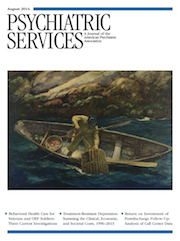Neurotic Disorders of General Medical Outpatients in Xi’an, China: Knowledge, Attitudes, and Help-Seeking Preferences
Abstract
Objective
This study assessed knowledge of neurotic disorders, and attitudes and preferences toward professional help and treatment for them, among general medical outpatients in general hospitals in Xi’an, China.
Methods
General medical outpatients (N=372) from general hospitals in China were recruited by using a stratified cluster sampling method between June and September 2010. In face-to-face interviews, participants age 16 years or older were assessed for their knowledge, attitudes, and help-seeking preferences in regard to neurotic disorders (obsessive-compulsive disorder, social phobia, and panic disorder). Demographic data were also collected.
Results
Lack of insight into neurotic disorders was common among medical outpatients in general hospitals of Xi’an, China. Twenty-four percent to 58% of the outpatients had some knowledge of the symptoms and treatment of neurotic disorders. Only 11% of the outpatients would reveal to others that they or a family member suffered from neurotic disorders. When faced with the problem of neurotic disorders, the preference of the respondents was to visit a psychiatrist in a general hospital (44%), and only 17% would visit a physician in a psychiatric hospital. Major ways for the outpatients to obtain knowledge regarding neurotic disorders were via radio and television (36%), and only 18%−23% of outpatients obtained knowledge about neurotic disorders through printed public health materials and by attending lectures.
Conclusions
Study results underscore the need for information campaigns aimed at improving the mental health literacy of general medical outpatients. Such campaigns must consider culturally relevant beliefs to facilitate the development of specific educational programs.



